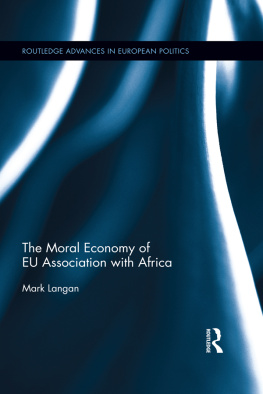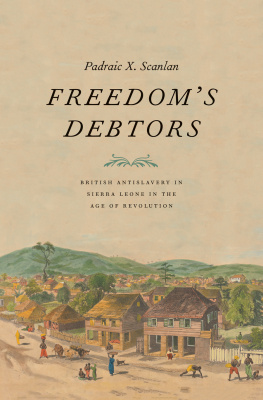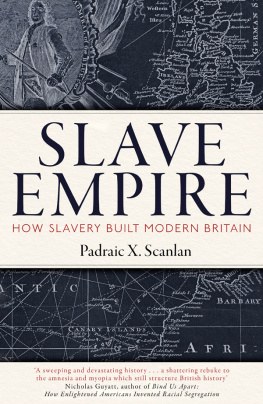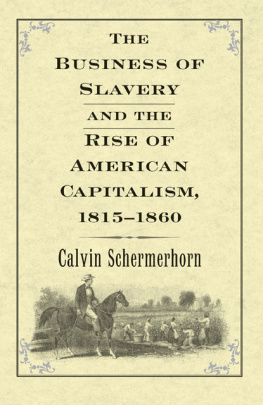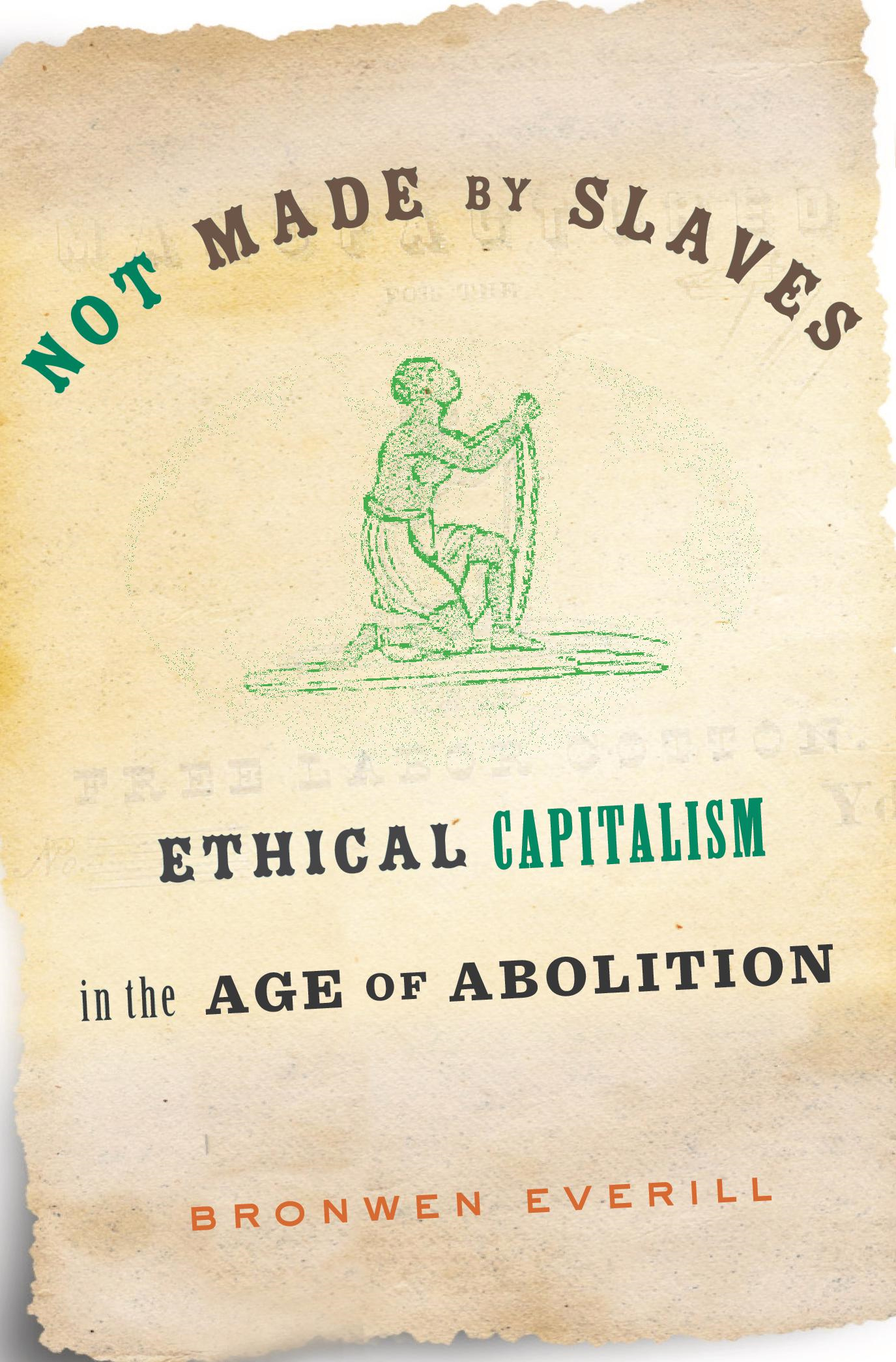Names: Everill, Bronwen, 1983 author.
Title: Not made by slaves : ethical capitalism in the age of abolition / Bronwen Everill.
Description: Cambridge, Massachusetts : Harvard University Press, 2020. | Includes index.
Subjects: LCSH: Business ethicsAtlantic Ocean RegionHistory19th century. | CapitalismMoral and ethical aspectsAtlantic Ocean RegionHistory19th century. | Consumption (Economics)Moral and ethical aspectsAtlantic Ocean RegionHistory19th century. | Antislavery movementsAtlantic Ocean RegionHistory19th century. | Social responsibility of businessAtlantic Ocean RegionHistory19th century. | Atlantic Ocean RegionCommerceHistory19th century.
E VERY THING IS WET, Martin Benson complained. The Rhode Island merchant had arrived in Freetown, West Africa, on a speculative venture. The trip had been stormy, but at least he had arrived as the first of that seasons ships. He had been commissioned by the British quasi-philanthropic Sierra Leone Company to provision its colony of black loyalists in West Africa. The Companys ability to restock the colonys store had been undermined by the ongoing war between the British and the French. But trade goods like rum, tobacco, and cotton cloth were necessary to the Companys mission: undermining the slave trade by allowing African merchants to purchase those trade goods with commodities like ivory, dyewood, and rice instead of with slaves.
The Newport trader, Benson, had been the Sierra Leone Companys solution. As a former slave trader, he had good knowledge of the Africa trade. He had approached his backers, the Providence firm of Brown, Benson & Ives, which had recently decided to move away from the slave trade. George Benson, the oldest member of the partnership, was a dedicated abolitionist. Nicholas Brownnephew of both John Brown, the infamous slave trader, and Moses Brown, one of Rhode Islands most prominent abolitionistsinvited his new brother-in-law (his fathers former apprentice) Thomas Poynton Ives, into partnership in 1792. Both were twenty-five and looking for new opportunities to make money. They had ready access to the goods the Sierra Leone Company needed, and the right abolitionist credentials.
Despite this pedigree, the venture still faced obstacles. Shifting and repacking Tobacco, Benson and his crew discovered not a single hogshead that we have yet opened, but has been wet with salt water. They continued to repack, trying to hide the damage, but a few days later Benson knew his ploy wouldnt work: I have had several messages from the Governor desiring me to land no more, as the Tobacco is not merchantable he declines taking it.
After a sleepless week negotiating the price of the cargo with the Sierra Leone Companys governor, Zachary Macaulay, Bensons frustration leaps off the page. Macaulay also had a nose for business and drove a hard bargain. After a misspent youth, gambling with friends in Glasgow and working as a bookkeeper on a Jamaica plantation, he had had an evangelical conversion and become an ardent opponent of the slave trade. In fact, Benson and Macaulay had known each other in the Caribbean, where Macaulay recalled him as my Champion when abused by my old friends of Jamaica. When an opportunity came up with the newly formed abolitionist Sierra Leone Company in 1791, Macaulay had jumped at the chance to combine his commercial acumen with the anti-slave-trade mission. By the time Benson arrived, Macaulay had already learned much from his slave-trading competition, including the correct assortment of goods for African trade, the importance of rice in the local economy, and the rhythms of ships arrivals. But he found his commercial match in the former Rhode Island slave trader.
Bensons cargo had been full of rum. But as people are daily turning to the Mahomaten religion in the wider region, where a reformist Islamic jihad was under way, he lamented that rum is no longer in demand as a trade good. And although the Sierra Leone Colony at Freetown wasnt exactly dry, the evangelical and overtly paternalistic Macaulay was concerned that the black settlers in the colony should not have too much access to spiritous liquors. Rum hadnt been a great choice of cargo. But tobacco was in great demand. So Benson told Macaulay that he wouldnt sell any tobacco without a purchase of rum, which seemed like a good solution for his poorly planned cargo. With rum sales dependent on tobacco, wet tobacco could have been a disaster. But he knew a desperate customer when he saw one: I have waited on the Governor and consented to replace every pound of Tobacco that shall be refused by the inhabitants when sold at the [Company] store. Macaulay agreed this was a fair proposal. On breaking up six hogsheads at the store, such was the madness of the inhabitants that it was all sold, except 350 weight which was perfectly rotten. Less than half a hogshead remained of a 30 hogshead cargo of tobacco, and even that was sold off, some of it for as cheap as 1 or 2 pence. The rum was all sold, for a profit of 33, and the tobacco earned 80. Bensons gambit had paid off. A non-slave-trading voyage to Africa could be profitable.
But Zachary Macaulay had also learned from the experience. When he got back to Britain five years later, he had a plan: to marry his sweetheart, Selina; raise a large, evangelical family; and take advantage of the business opportunities created by the abolition movement. Macaulay took advantage of these close and intimate friendships with family members in India, formerly enslaved Africans in Sierra Leone, friends in the center of British politics, and trading contacts in the Americas to build a business empire that sought to make a profit while combatting the slave trade, and eventually enslaved labor, and improving the prospects of formerly enslaved people around the Atlantic.
Macaulay, like Brown, Benson & Ives, and the Sierra Leone Company, believed that operating with ethical principles need not preclude commercial success. And they were not alone. In the wake of Adam Smiths revolutionary accounts of human economic behaviors, The Theory of Moral Sentiments and The Wealth of Nations, consumers and producers around the world were attempting to square the rise of consumer capitalism with their own moral values. Proceeding from different motivations, often with entirely different plans of action, and seeking new ways to consume, produce, and profit in shifting away from the Atlantics slave economy, these individuals helped create a set of arguments for a new, ethical capitalism.
Commercial Abolitionism in the Atlantic World
This is a book about how a variety of people in the late Atlantic World wrote about and engaged with commerce and developing ideas of the consumers role in the economy in an attempt to undermine first the slave trade and later enslaved labor. The return by historians to an economic history of slavery has emphasized that slavery was not just the economic system of the US South or the Caribbean, but was implicated in the rise of capitalism around the Atlantic. Although this is a departure from the arguments about slavery as a precapitalist or feudalistic economic system that dominated for so long, it is actually not a new way of thinking at all. In fact, a number of antislavery activists, as well as people with antislavery leanings, thought that the global economy was deeply entangled with the slave trade and enslaved labor. And they tried to find ways of participating in modern economic life without supporting the slave system.


